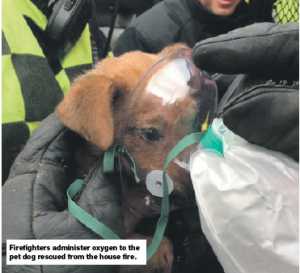 LIMERICK’S fire service handles around 2,000 emergencies every year and has its mobilising time down to one minute in the city and five minutes in the county.
LIMERICK’S fire service handles around 2,000 emergencies every year and has its mobilising time down to one minute in the city and five minutes in the county.
The statistics were given to members of Limerick city and county council’s emergency services committee at a meeting this week.
But director of services, Caroline Curley, told the meeting that the local authority, which technically employs fire crews, has “an ongoing problem” in recruiting full-time fire service operators.
“Not everyone wants to do that job,” she said.
Chief Fire Officer Michael Ryan was briefing council members on the current position of the emergency service in the county, before councillors were required to ratify the emergency operations plan for the coming year.
He told the meeting that the fire service processes the average emergency call in 63 seconds and the information about the location of the emergency and the details of what kind of emergency help is required is processed with a 99.73 per cent accuracy rate.
“This is information which is strictly scrutinised. Seconds make a difference when lie is at stake,” Officer Ryan told the meeting.
“Our aim is to bring mobilising time in the city down to less than one minute and under five minutes across the county.
The fire officer said that while efficiency of response is crucial to the service itself, there “can be issues depending on where the call out is. There may be traffic problems and other issues. Speed, familiarity with the location and information from the caller are all involved. People who call in an emergency can be very stressed “.
Cllr Michael Sheahan (FG) said that every member has “the height of respect for our fire service”.
Ms Curley said that the on-going negotiations between SIPTU, the firefighters’ union and their employers will be “conducted through the proper channels,” and the only task before the members was to vote in favour of sending the plan for the coming year on to the full council to be ratified.
Members were also told that at times, tenders and crew are dispatched to Limerick and vice-versa from Tipperary, Clare and Kerry, depending on where the emergency is and which tenders are available.
Councillors adopted the plan and have now sent it forward to the meeting of the full council for final approval.
”






